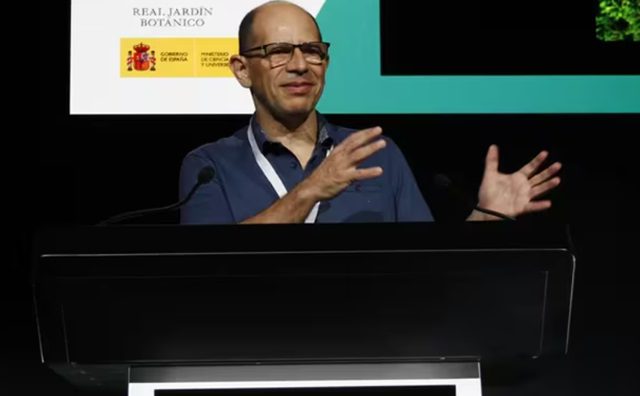BTN News: At the XX International Botanical Congress (IBC Madrid 2024), Carlos Jaramillo, a Colombian paleontologist from the Smithsonian Tropical Research Institute, had an important message. He said that our planet does not need saving—it is people who need to worry about surviving. During his talk at IFEMA Madrid, Jaramillo shared his findings on how tropical forests have changed. He also talked about climate change, cutting down trees, and pollution. He said that while the Earth has handled changes in climate for millions of years, the fast changes we see today are a big problem for humans.
Jaramillo explained that climate change has always happened. Over millions of years, Earth has gone through many warming and cooling times. Plants and animals have always found ways to adapt. When temperatures went up in the past, forests grew bigger all over the world. But now, the temperature is going up faster than ever before. This, along with pollution and cutting down trees, is putting life in danger.
“Plants can adapt to warmer weather, but they can’t compete with people cutting them down,” Jaramillo said. He talked about the fight between forest growth and deforestation. Right now, deforestation is winning because of choices made by people all around the world. Jaramillo said that even though many think the planet needs saving, Earth has lived for billions of years and will continue. “The real problem is for us, for our survival,” he added.
Jaramillo said that humans appeared about 250,000 years ago. Compared to the usual lifespan of species, which is about three million years, humans are still very young. But we are already facing big environmental problems. “The 200,000 years of human existence are like a tiny mark in the history of the Earth, and the 200 years since the industrial revolution are even smaller,” he explained. Jaramillo said that a paleontologist in 30 million years might not even notice humans existed. But they would see that many species died out during this time.
Talking about the history of tropical forests, Jaramillo mentioned a major event 65 million years ago. A big meteorite hit the Yucatán Peninsula and caused a huge amount of carbon to go into the air. This led to a mass extinction. Even though many species died, this event helped flowering plants grow quickly. They soon outnumbered non-flowering plants, leading to the dense tropical forests in South America.
Jaramillo’s team studies these past events by looking at fossils, especially pollen. Pollen grains are tough and can stay in the environment for a long time. They help scientists understand old ecosystems. “By studying pollen, we can learn about whole ecosystems,” Jaramillo concluded. He stressed that understanding the past helps us learn about the future of our planet’s plants and animals.
In summary, Carlos Jaramillo’s message is clear. While Earth will survive, people need to act to solve the environmental problems that threaten our survival. His studies show that humans are just a small part of Earth’s long history, and we must work to protect our future.


